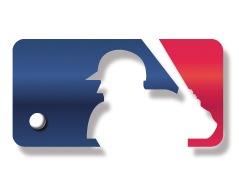 In his recently published book, ‘Bash Brothers: A Legacy Subpoenaed’, Dale Tafoya delves into the careers of two of the biggest sluggers in MLB during the 1980s and the 1990s. Mark McGwire and Jose Canseco astounded fans and fellow ballplayers alike with unbelievable displays of power at the plate. However, where they once symbolized baseball greatness, they now represent an unseemly era defined by performance-enhancing drugs. As Major League Baseball continues to come to terms with its past in the hope of protecting its future, ‘Bash Brothers’ is a timely exposé of how drug use was allowed to flourish. With his book raising many interesting questions about the issue that has dominated baseball in recent years, Tafoya kindly spent some time revealing to BaseballGB the process he went through in writing ‘Bash Brothers’ and the impact that McGwire and Canseco have had on the sport.Â
In his recently published book, ‘Bash Brothers: A Legacy Subpoenaed’, Dale Tafoya delves into the careers of two of the biggest sluggers in MLB during the 1980s and the 1990s. Mark McGwire and Jose Canseco astounded fans and fellow ballplayers alike with unbelievable displays of power at the plate. However, where they once symbolized baseball greatness, they now represent an unseemly era defined by performance-enhancing drugs. As Major League Baseball continues to come to terms with its past in the hope of protecting its future, ‘Bash Brothers’ is a timely exposé of how drug use was allowed to flourish. With his book raising many interesting questions about the issue that has dominated baseball in recent years, Tafoya kindly spent some time revealing to BaseballGB the process he went through in writing ‘Bash Brothers’ and the impact that McGwire and Canseco have had on the sport.Â
Many newspaper columns, web pages and books have been devoted to the wider issue of drugs in baseball, but ‘Bash Brothers’ puts a new focus on the roles played by McGwire and Canseco. It was a focus inspired by personal experience. “As a little leaguer and an aspiring major leaguer in the late 1980s, I was in awe of the Bash Brothers, Mark McGwire and Jose Canseco†, Tafoya said. “Not only did the duo muscle the Oakland A’s lineup to sheer dominance, but they also triggered a bodybuilding movement in baseball, beginning in the 1980s. They were twenty-something sluggers who pounded the weights and – against the consensus of stubborn, old-time traditionalists – proved muscles had a place in baseball. At the time, they were one of the feature attractions in baseball and I was one of those teenagers who wanted to emulate them. Twenty years later, though, I’m a journalist and no one could have foreshadowed that their lives and careers would be stained by illegal drugs and cheating. And on March 17, 2005, when McGwire and Canseco marched before U.S. Lawmakers to address epidemic steroid use in baseball, it was a sad day for many fans like myself. Their harsh and heart-pounding breakup compelled me to chronicle their lives and legacy – from their rise to stardom – to their tragic fall.â€
Unlike much of the sensationalist output on this issue, it’s clear in reading ‘Bash Brothers’ that Tafoya wanted to take a more measured approach. “I wanted my work and interviews to be objective. No one can claim I bashed Canseco or McGwire in the book, but I simply told a non-judgmental story, giving readers the opportunity to form their own opinions. There are some eye-opening facts, information and events embedded in their lives that, I feel, readers should know about and I unveil those nuggets in my bookâ€.
Central to these revelations is the fact that Tafoya went to the people who knew the real story: the many former team mates and coaches of the two sluggers. As he puts it: “after three years of tireless research and interviewing over 150 people who were an integral part of their lives, that story became a book, Bash Brothers: A Legacy Subpoenaed, an historical document that explains the infant stages of steroid use in baseball and how the Bash Brothers triggered the sports most troubled yet highly-lucrative era. It’s a riveting story.â€
Baseball, like any sport, is something of a closed shop. There is a protectionist attitude that wants to ‘keep things in the clubhouse’ as part of a concerted effort to manage the public image of the game. As such, getting players to speak about such a sensitive issue could not have been easy. “A few of my interviewees were pretty guarded”, Tafoya admits, “but there were a lot that wanted to clarify blurry issues and explain how things really unfolded. Talking to players who teamed with McGwire and Canseco in the minor leagues was very revealing and sheds light on their motivations and the baseball culture at the time. Former team mates Jose Tolentino and Rocky Coyle especially offered me great stories on playing with them at minor league stops such as Huntsville, Alabama and Modesto, California. Before I interviewed them, I assured them my questions wouldn’t be laced with ‘steroids’, so I’m sure that put them at ease. But some voluntarily and freely discussed the issue, which I appreciated”.
Special recognition is reserved for Hall of Famer Dennis Eckersley, described by Tafoya as his “most frank interviewee†and “a class actâ€. “He told me, ‘Jose [steroid use] was obvious, but you would have to say Mark was, too‘. And in diving into the A’s minor league system in the mid-1980s, I discovered some interesting revelations: 1) There was a muscle-bound trainer exposing and schooling players on steroids during spring training in 1985. 2) After Canseco juiced before the 1985 season and morphed into Roy Hobbs [the lead character in the film ‘The Natural’] that year, teammates knew what he was doing and his instant success piqued their interest, too. To say Canseco was the only steroid user in the A’s organization would be pretty naïve. I confronted Dave McKay, the A’s former strength and conditioning coach, about those issues and he addressed them in the book. Was there a cover-up? Readers will have to decide”.
Captivating though their personal stories may be, it is this wider impact that really grabs the attention when reading ‘Bash Brothers’. Their roles as pioneers should not be underestimated. “While there certainly were a few weightlifters in the game before the Canseco-McGwire era, none were superstars. Brian Downing, Lance Parrish and Carlton Fisk were avid lifters and top-tier players, but they didn’t posses the calibre of talent lavished on Canseco and McGwire”. It’s a common misconception that simply pounding weights and taking steroids can turn a chump into a champ. Indeed, Curt Schilling has claimed in the past that Canseco wouldn’t have made the Majors without steroids. That’s not a theory Tafoya subscribes to. “In my opinion, both sluggers were already gifted and anointed with big-league power. For example, McGwrire shattered home run records at the University of Southern California. In 1982, As a seventeen-year-old – before juicing – Canseco was blasting 500-foot home runs in the Pioneer League at Idaho Falls, Idaho. Combining that talent with weightlifting and steroids, however, is what propelled them to greatness. When they barged into baseball and clobbered tape-measure home runs, other players took notice and began diving into weights and a supplement-fuelled baseball culture emerged. Canseco and McGwire ushered in a unique breed of player emerging into the sport. Were they the first steroid users in baseball? I don’t think so. Did they revolutionize baseball and change the landscape of the sport? Absolutely”.
Having revolutionized the sport together, their exits were markedly different. Although McGwire was able to ride off into the sunset (before being dragged back into the spotlight by Congress), the end of Canseco’s Major League career was, perhaps suitably, a more convoluted affair. Owing to his dubious reputation, Canseco’s claims that he had been driven out of the game were easy to pass off as the paranoid ramblings of a bitter cheat; however the recent treatment of the currently unemployed Barry Bonds casts them in a new light. Was Canseco blacklisted by the baseball community after all?. “There are some shades of truth to that. It was pretty mysterious that at 38, Canseco couldn’t even find a job as a designated hitter, especially when aging players such as Julio Franco, Rickey Henderson and Andres Gallaraga all managed to latch onto a club. A lot of it, I think, had to do with Canseco’s reputation. Some questioned his work ethic and his ability to stay healthy over the course of a season. Many general managers viewed him as a run-down, injury-prone, one dimensional player. Even so, he would give a club 25-30 home runs a year, which could provide some punch in the lineup. I think his reputation played a larger part in his unemployment than his expertise in steroids. Canseco wore out his welcome”.
As has Barry Bonds? “It’s pretty clear that Major League Baseball is collectively banning him from the game because of his pending indictment. He could have easily given a club 40 home runs this season, yet he’s without a job? When has this ever happened? Obviously teams are leery of his legal squabbles and are keeping their distance. Having said that, that’s their choice; they’re the employers and they have the right to hire who they want. And let’s be real: With the severity of the indictment and perjury charges haunting him off the field, would he be able to focus in the batters box? Who could? Not me”.
The legal charges over Bonds’s head are a useful reminder that beyond the arguments of ‘cheating’ on the ballfield, stepping into the world of drugs means stepping into a world of criminal activity. This partly explained why Congress demanded answers following the publication of Canseco’s tell-all book: ‘Juiced’. It was at this hearing that Mark McGwire’s standing as the All American hero crumbled beneath his feet. His infamous desire not “to discuss the past†left many fans feeling betrayed and his pathetic performance caused much head-scratching and bemusement. Tafoya puts that display into some perspective. “McGwire was content with just weathering the hearings and now all he cares about is playing golf in his resort, Shady Canyon in Irvine, California and living a quiet life with his family. I speculated about how his younger brother, J.J.’s involvement with steroids may have swayed him to not discuss his past. The congressional hearing exposed McGwire. During the final years of his career he was peppered with questions of his possible steroid use and he always sternly denied it. Even when Canseco’s first book, Juiced, came out he publicly denied it. Why didn’t he do the same under oath before Congress? He lied to the fans and media, but wasn’t stupid enough to lie to U.S. Lawmakers. Even if he’s elected to the Hall of Fame, I often wonder if he would even show up”.
We are very unlikely to find out. While McGwire and Canseco were touted as cast iron Hall of Famers in their pomp, the odds of them ending up in Cooperstown are slim (McGwire) to none (Canseco). Thanks to ‘Bash Brothers’, baseball fans have all the evidence they need to make up their own minds as to whether the baseball writers are taking a fair stance or not.
My review of ‘Bash Brothers: A Legacy Subpoenaed’ can be found here. Many thanks to Dale for his contributions to this article. You can buy Bash Brothers from all the usual internet-based bookstores.


1 comment
[…] book about Jose Canseco and Mark McGwire, Bash Brothers, and was kind enough to participate in an author interview to go alongside my review of the book back in July […]